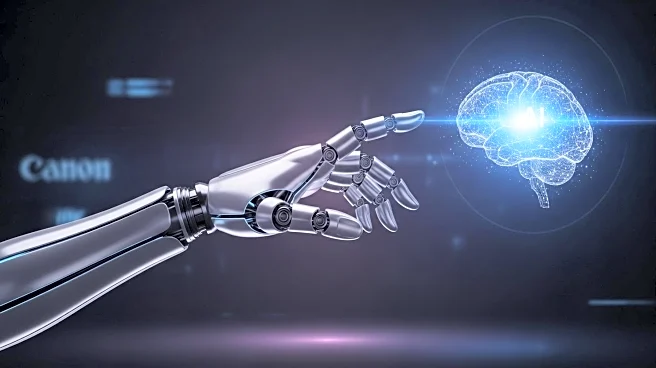What is the story about?
What's Happening?
Elon Musk's artificial intelligence company, xAI, has filed a lawsuit against OpenAI, accusing it of stealing trade secrets. The lawsuit, submitted in a California federal court, claims OpenAI has been hiring former xAI employees to gain access to confidential information about xAI's AI chatbot, Grok. This legal action is part of a series of lawsuits Musk has initiated against OpenAI, reflecting a growing rivalry between Musk and OpenAI's CEO, Sam Altman. The lawsuit alleges that OpenAI is targeting individuals with knowledge of xAI's technologies and business plans, inducing them to breach confidentiality agreements. The complaint also mentions a separate lawsuit against a former xAI engineer, Xuechen Li, for allegedly taking confidential information to OpenAI.
Why It's Important?
The lawsuit highlights the intense competition in the AI industry, where companies are vying for talent and technological advantages. The outcome of this legal battle could impact the strategies of major AI firms, influencing hiring practices and the protection of intellectual property. If xAI's claims are upheld, it could lead to stricter regulations on employee transitions between competing firms, affecting how companies safeguard their innovations. The rivalry between Musk and Altman also underscores the broader tensions in Silicon Valley, where partnerships and collaborations can quickly turn into competitive disputes.
What's Next?
The legal proceedings will likely unfold over the coming months, with potential implications for both companies' operations and reputations. Stakeholders in the tech industry will be watching closely, as the case could set precedents for how trade secrets are protected and litigated. OpenAI's response to the allegations and any counteractions will be critical in shaping the narrative and potential outcomes. Additionally, the lawsuit may influence other tech companies to reassess their confidentiality agreements and employee retention strategies.
Beyond the Headlines
This lawsuit reflects broader ethical and legal challenges in the tech industry, particularly concerning employee mobility and intellectual property rights. As AI technology continues to evolve, companies must navigate the balance between innovation and ethical business practices. The case also raises questions about the role of non-compete clauses and the extent to which they can be enforced, potentially prompting discussions on labor rights and corporate governance.
















